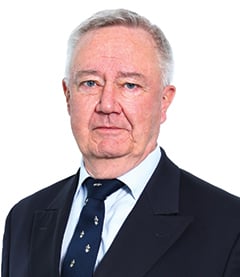-
Accounting Advisory
Our accounting advisory team help businesses meet their complex financial reporting requirements. The team can support in applying new financial reporting standards, IFRS/ US GAAP conversions, financial statement preparation, consolidation and more.
-
Payroll
Our team can handle your payroll processing needs to help you reduce cost and saves time so that you can focus on your core competencies
-
Managed accounting and bookkeeping
Outsourcing the financial reporting function is a growing trend among middle market and startup companies, as it provides a cost-effective way to improve the finance and accounting function. Our team can help with financial statement preparation, consolidation and technical on-call advisory.
-
Accounting Advisory
Our team helps companies keep up with changes to international and domestic financial reporting standards so that they have the right accounting policies and operating models to prevent unexpected surprises.
-
Crypto Accounting Advisory Service
Our team can help you explore appropriate accounting treatment for accounting for holdings in cryptocurrencies, issuance of cryptocurrencies and other crypto/blockchain related accounting issues.
-
ESG Reporting and Accounting
As part of our ESG and Sustainability Services, our team will work with you on various aspects of ESG accounting and ESG reporting so that your business can be pursue a sustainable future.
-
Expected Credit Loss
Our team of ECL modelling specialists combine help clients implement provisioning methodology and processes which are right for them.
-
Finance Transformation
Our Finance Transformation services are designed to challenge the status quo and enable your finance team to play a more strategic role in the organisation.
-
Managed Accounting and Bookkeeping Services
Outsourcing the financial reporting function is a growing trend among middle market and startup companies, as it provides a cost-effective way to improve the finance and accounting function. Our team can help with financial statement preparation, consolidation and technical on-call advisory.
-
Business Tax Advisory
Our business tax team can help you navigate the international tax landscape, grow through mergers and acquisitions, or plan an exit strategy.
-
Corporate Finance
Our corporate finance team helps companies with capital raising, mergers and acquisitions, private equity, strategic joint ventures, special situations and more.
-
Financial Due Diligence
From exploring the strategic options available to businesses and shareholders through to advising and project managing the chosen solution, our team provide a truly integrated offering
-
Valuations
Our valuation specialists blend technical expertise with a pragmatic outlook to deliver support in financial reporting, transactions, restructuring, and disputes.

-
Sustainability with the ARC framework
Backed by the CTC Grant, businesses can tap on the ARC Framework to gain access to sustainability internally, transform business processes, redefine job roles for workers, and enhance productivity. Companies can leverage this grant to drive workforce and enterprise transformation.

-
Business Tax Advisory
Our business tax team can help you navigate the international tax landscape, grow through mergers and acquisitions, or plan an exit strategy.
-
Corporate Tax Compliance
Our corporate tax teams prepare corporate tax files and ruling requests, support you with deferrals, accounting procedures and realise tax benefits.
-
Tax Governance
Our Tax Governance Services are designed to assist organisations in establishing effective tax governance practices, enabling them to navigate the intricate tax environment with confidence.
-
Goods and Services Tax
Our GST team supports organisations throughout the entire business life-cycle. We can help with GST registration, compliance, risk management, scheme renewals, transaction advisory and more.
-
Transfer Pricing
Our Transfer Pricing team advises clients on their transfer pricing matters on and end-to-end basis right from the designing of policies, to assistance with annual compliance and assistance with defense against the claims of competing tax authorities.
-
Employer Solutions
Our Employer Solutions team helps businesses remain compliant in Singapore as well as globally as a result of their employees' movements. From running local payroll, to implementing a global equity reward scheme or even advising on the structure of employees’ cross-border travel.
-
Private Client Services
Our private client services team provides a comprehensive cross section of advisory services to high net worth individuals and corporate executives, allowing such individuals to concentrate on their business interests.
-
Welfare and benefits
We believe that a thriving team is one where each individual feels valued, fulfilled, and empowered to achieve their best. Our welfare and benefits aim to care for your wellbeing both professionally and personally.
-
Career development
We want to help our people learn and grow in the right direction. We seek to provide each individual with the right opportunities and support to enable them to achieve their best.

Background
Singapore offers tax exemptions for funds that are managed by Singapore-based fund managers that are regulated by the MAS. These exemptions also extend to funds that are managed by fund managers that are exempt from the regulations. One such exemption is given to managers of “Single Family Offices” (SFOs).
A Single Family Office is not defined in regulation but, as its name suggests, is generally taken to mean an investment activity undertaken on behalf of a family comprising only individuals who are direct lineal descendants of a single ancestor.
The tax exemptions for the fund are given in respect of “specified income from designated investments”, a term defined in the tax regulations that, broadly, encompasses returns from most forms of financial investment, with the notable exception of anything to do with Singapore real estate.
There are three categories of fund that qualify for the exemptions:
- an offshore fund, governed by section 13D of the ITA;
- a Singapore constituted fund (including the much-heralded Variable Capital Company - VCC), governed by section 13O of the ITA; and
- an “enhanced tier” fund, which can be onshore, offshore and take a variety of forms (including VCC), governed by section 13U of the ITA.
Entry requirements for the three categories become more onerous as you work through them, with the offshore fund receiving the lightest touch.
Those governed by sections 13O and 13U require approval from the MAS and both require annual business spending of S$200,000 (with 13U requiring the money to be spent locally). Finally, 13U requires assets under management (AUM) to be at least S$50million.
The objective of the new conditions, which we will discuss below, seems to be to “up the game” of the players in this segment of the fund management arena, without necessarily bringing them into the regulatory net.
Changes to incentive requirements for section 13O funds
(i.e., fund vehicles which are Singapore-incorporated companies)
- Section 13O funds are now required to have a minimum of S$10m under management at the point of application for the incentive, and to commit to increasing this to S$20m within 2 years. As noted above, an AUM minimum only previously applied to section 13U funds.
- In addition, SFO’s applying for the section 13O incentive were previously not required to employ a minimum number of investment professionals (“IPs”). With effect from 18 April 2022, SFO’s must employ at least two IPs. The MAS may grant a one-year grace period to employ the second IP if there are genuine reasons why two cannot be hired straight away.
Changes to incentive requirements for section 13U funds
(i.e., fund vehicles that can be constituted or resident either in or outside Singapore)
While no changes are proposed to the number of IPs employed by an SFO for section 13U funds, the MAS now stipulates that at least one of the three currently required must be a non-family member. Again, there may be a grace period given within which to employ this individual.
Changes to incentive requirements for both sections 13O and 13U funds
1. The annual business spending requirements for section 13O and 13U funds have now also been modified into a tiered-business spending framework as follows:
|
|
Section 13O |
Section 13U |
|
AUM |
Minimum total business spending (per financial year) |
Minimum local business spending (per financial year) |
|
Less than S$50m |
S$200,000 |
N/A (doesn’t qualify) |
|
Between S$50m and S$100m |
S$500,000 |
S$500,000 |
|
At least S$100m |
S$1,000,000 |
S$1,000,000 |
It is worthwhile noting that the MAS has specified that financing expenditure is excluded from the business spending floor. The intent of this policy is to ensure that the incentivised funds managed by SFOs have business substance in Singapore.
2. Previously, no geographical requirements were placed on the investments made by sections 13O and 13U funds. However, the new rules mean that SFOs must now have at least 10% of the fund’s AUM or S$10m (whichever is lower) invested in Singapore-based investments at any one point in time (including the point of application).
Such investments include (i) equities listed on Singapore-licensed exchanges; (ii) qualifying debt securities; (iii) funds distributed by Singapore-licensed/registered fund managers; and (iv) private equity investments into non-listed Singapore-incorporated companies (e.g. start-ups).
It is unclear at this juncture whether non-compliance with this requirement will result in a termination of the incentive award or just a temporary disqualification for the year or years during which the breach subsists.
A deeper dive
If you can’t stand the heat…
Perhaps the most notable ommission with the new rules, is that section 13D offshore funds have been left completely untouched, and it is to be wondered whether these measures will simply not just cause the fund vehicles to move back whence they came pre-2006, namely offshore. That remains to be seen.
Spend, spend, spend
The spending requirements also merit some comment. To put them in context, the minimum sustainable fund size will be S$20million. Assuming an arm’s length management fee is around 1%, that would be S$200,000.
The same goes for a S$50million fund. So the spending requirements do not look to be unreasonable in that context. It also keeps your related fund manager honest, as he will pay tax on the fee, even though it is only moving from the left pocket to the right).
A spanner in the works
The changes were announced out of the blue and certainly without general announcement. Arguably, more notice could have been given to SFO’s thinking about applying for the tax incentives.
A lot of time, money and planning goes into devising a fund structure and strategy, obtaining tax incentives and getting the investment process going. The short-to-no notice given in this instance could throw some potential applicants off balance completely, as they may now have to relook at their earlier proposed structure to see if they can qualify under the new criteria.
Investment professionals don’t grow on trees
Family offices are typically managed by only family members and having the right cultural fit may be more important than having pure competence. The labour market in Singapore is also tight and becoming pricey, as a result. It will not always be easy to find the right person, or keep them, particularly in a situation where they are outnumbered by members of the same clan.
While there is a grace period for SFOs to meet the 3rd party IP requirement, this should not be taken as a given by MAS.
Hello grandfather
SFOs that have been awarded the sections 13O and 13U incentives are thankfully spared from the new requirements, as the tax incentives (under the old criteria) are awarded for the life of the fund. However, should these funds wish to change their fund structures or transit from section 13O to section 13U, they are likely to be subject to the new criteria, as a fresh application would be required.
Spare a thought for Singapore
The requirement that the lower of S$10million or 10% of the portfolio must be invested in Singapore is undoubtedly well intentioned and aimed at bolstering the benefit these funds bring to the Singapore economy, in other ways. For most, this will not present an insurmountable issue, unless their strategy, of course, is Japanese real estate…..
Who’s next?
Finally, it is noted that these changes apply only to SFOs. What is not so clear is whether they will remain confined to this class of investor. But for the time being, prospective SFOs at least, will need to take a closer look at their options.
Thank you, thank you
It is probably true to say that the new rules are unlikely to be embraced with open arms by the SFO community itself (existing or putative). Much effort had, in fact, been put into reducing the restraints and allowing SFOs access to the VCC which, for the exempt class, is currently out of reach – and you would expect, likely now to remain so.
More holistically, however, these tightened criteria could see more positive benefits accruing to the Singapore economy as the MAS seeks to enhance the professionalism of SFOs as well as increase substance requirements here. Without actually saying as much, the MAS looks to be pushing SFOs towards the Enhanced Tier end of the spectrum and possibly regulation, if the want to get hold of a VCC.
We look forward to seeing the MAS’s circular incorporating these new criteria, along with the changes to the designated investments announced recently during Budget 2022. (Read more about the Budget 2022 changes in our commentary)





